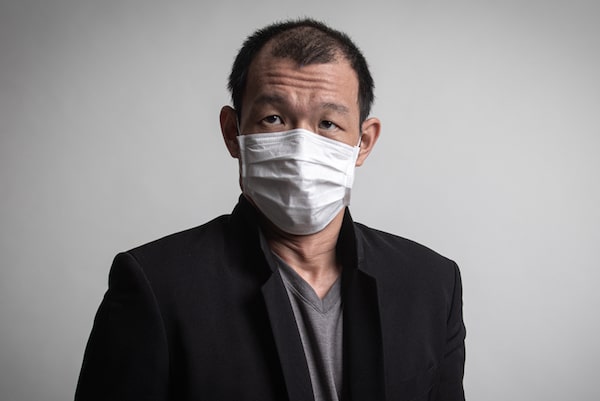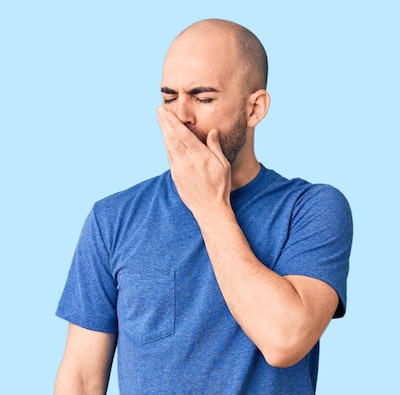COVID-19 and Hair Loss – Causes and Solutions

As the spread of COVID-19 continues across the United States, hair loss is emerging as one of the medical conditions being experienced by a growing number of coronavirus patients. While the CDC (Centers for Disease Control and Prevention) has not officially listed hair loss as a COVID-19 symptom, many people are posting photos of thinning hairlines, patchy areas on the scalp and large clumps of hair that have fallen out of the scalp.. They are posting their photos on social media and in online support groups. Here are some of the reasons hair loss is happening in patients battling the coronavirus.
COVID-19 and Hair Loss
When it comes to hair loss and coronavirus, many doctors say the loss of hair on the scalp is likely related to stress and trauma to the body that comes with battling COVID-19.
- Telogen effluvium is a hair loss condition where the hair stops growing due to stress. Telogen is when the hair growth cycle enters the resting stage. Telogen effluvium is when stress forces a large number of hair roots on the scalp to prematurely enter into the resting stage. While a number of factors can cause this condition, major psychological stress is one of them.
- Trichotillomania is a hair loss condition where the cause is a person actively contributing to the loss of hair on the scalp. This is a psychological condition that causes people to involuntarily pull out their hair. Stress and anxiety are believed to be two of the causes of this condition and stress and anxiety are both found in many people as the pandemic continues to spread.
- Some people are not eating a healthy diet due to stress and a loss of appetite from worrying. If a person does not get enough vitamins or minerals in their regular diet, hair loss can be one of the side effects of not following a healthy diet.
Treatments for Hair Loss Related to Stress
Thankfully, hair loss related to stress can be addressed by a medical professional and can often be reversed.
- The hair loss from telogen effluvium will slow down/stop about 6-8 months after the cause of the stress is no longer active
- Trichotillomania can be treated with a hair transplant once the psychological condition causing the hair pulling has stopped for 6-12 months.
- A doctor can recommend a healthy diet plan for patients suffering from hair loss due to a lack of appropriate vitamins and minerals in their diet. Food that is rich in biotin, such as eggs and bananas, support healthy hair growth. Patients can also take vitamin supplements filled with antioxidants such as vitamins C and E.
Additional Steps to Combat Hair Loss Related to Stress
 Get Plenty of Sleep – People suffering from stress and anxiety can find their sleep patterns disrupted which can also cause a shift in the hormonal balance of the body.During the ongoing COVID-19 crisis, people should work on getting 7-8 hours of sleep per night and also try going to sleep and getting out of bed at the same time each day.
Get Plenty of Sleep – People suffering from stress and anxiety can find their sleep patterns disrupted which can also cause a shift in the hormonal balance of the body.During the ongoing COVID-19 crisis, people should work on getting 7-8 hours of sleep per night and also try going to sleep and getting out of bed at the same time each day.- Regular Exercise – Besides helping people remain in shape, regular exercise can help a person better deal with stressful situations and large problems. A consistent exercise routine will help keep a person balanced and calm.
- Seek Professional Help – Since major life events can cause stress, a person should turn to a professional for help in navigating a difficult time. A therapist can help a person discuss what they are feeling or experiencing and also work to find ways to cope with the stress. A hair transplant surgeon can examine the scalp of a patient to determine the cause of the hair loss, examine the current condition of the hairline and provide medical options for treating the reason for the hair loss.
- Relax – There are times when stepping back and taking time to relax can help a person relieve their stress. Yoga and meditation are just two examples of activities that can be practiced to reduce stress. Making time for relaxing activities and hobbies can help a person get away from the stress of COVID-19.
- Patience – This might be one of the hardest steps to practice on a daily basis. The issues that cause stress and anxiety will (hopefully) eventually go away on their own or through the efforts of others. Being patient and understanding that a change in the situation causing the anxiety will eventually occur will help a person stop suffering from stress that can cause hair loss.
Unfortunately, it looks like a medical cure for coronavirus is not on the horizon anytime in the near future. Anyone that is suffering from hair loss is invited to contact our office and schedule a consultation appointment with one of our doctors. Our experienced team of hair transplant specialists can perform an in-person or online consultation to determine the cause of the hair loss and recommend a treatment plan that can address the issue and restore the hairline.
MA